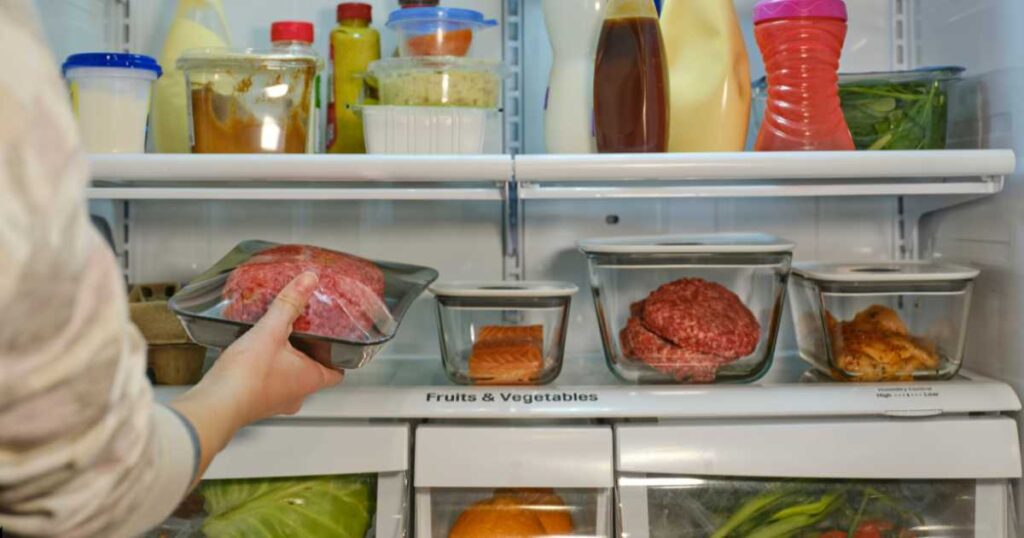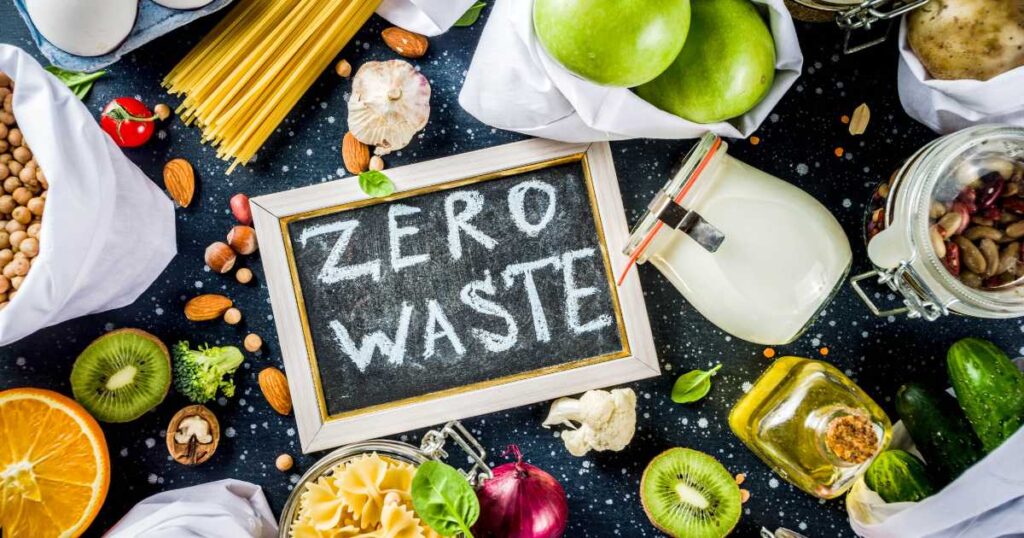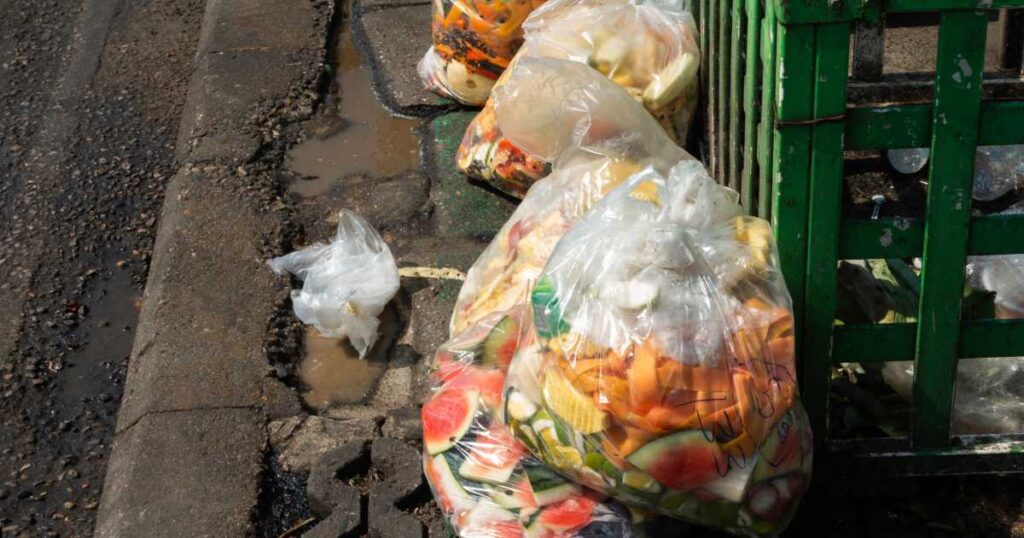Food waste is a pressing global issue, with nearly one-third of all food produced going to waste annually. This not only wastes valuable resources but also contributes to environmental damage and exacerbates hunger worldwide.
Tackling food waste is not just a moral obligation but a practical necessity for a sustainable future. Both households and restaurants can take actionable steps to reduce food waste, saving money and protecting the environment while ensuring more food is available for those in need.
How Households Can Reduce Food Waste?
Start with Mindful Meal Planning
Planning your meals ahead of time is an excellent strategy to cut down on food waste. By preparing a weekly menu and a detailed shopping list, you ensure you only purchase what’s necessary. Check your pantry before shopping to avoid buying duplicates and resist impulsive purchases. This thoughtful method not only cuts down on waste but also helps you save money.
Store Food Properly
Proper food storage is essential to extending freshness and reducing spoilage. Use a “first in, first out” (FIFO) system in your refrigerator to ensure older items are used before newer ones. Learn the best storage methods for different foods: keep potatoes and onions in a cool, dark place, and store herbs in jars of water to keep them fresh for longer. If large quantities of expired food need disposal, a rental dumpster for residential use could be a practical option.

Get Creative with Leftovers
Leftovers provide a great opportunity to experiment in the kitchen. Transform roasted vegetables into soups or casseroles, overripe bananas into banana bread, and stale bread into croutons or breadcrumbs. Additionally, batch cooking and freezing portions is a convenient way to save time and minimize food waste.
Embrace Composting
When waste is unavoidable, composting is a great solution. Vegetable peels, coffee grounds, eggshells, and other organic scraps can be turned into nutrient-rich compost for your garden. This not only reduces landfill waste but also enriches soil for gardening. For larger clean-up projects, consider using a dumpster rental to manage organic and other types of waste efficiently.
Share and Donate Excess Food
Sharing food is a powerful way to reduce waste and help others. Donate non-perishable items to local food banks or share meals with neighbors. This ensures surplus food is used effectively while fostering a sense of community.
Educate the Family on Food Waste
Teach family members, especially children, about the importance of reducing food waste. Encourage them to value food, take only what they can eat, and learn sustainable habits like composting and creative cooking. These lessons can lead to long-term positive change for the environment.
How Restaurants Can Reduce Food Waste?
Restaurants, as key players in the food industry, have a significant opportunity to combat food waste while improving efficiency, reducing costs, and fostering customer loyalty. By adopting a multi-faceted approach, restaurants can make impactful changes.

Prioritize Smart Inventory Management
Efficient inventory management is the foundation of reducing food waste in restaurants. By closely tracking inventory, restaurants can ensure they purchase the right quantities of ingredients and use them before they spoil. Tools like inventory management software can provide real-time insights, helping staff monitor stock levels and expiration dates.
The “first in, first out” (FIFO) system is particularly effective. When restocking shelves, place newer ingredients behind older ones to ensure that items nearing their expiration are used first. Additionally, tracking patterns of food use and waste can help restaurants identify high-waste areas and adjust purchasing accordingly, reducing overstocking and unnecessary spoilage.
Optimize Portion Control
Portion control plays a vital role in minimizing plate waste. Offering smaller portion sizes or allowing customers to customize their meals ensures they receive food that matches their appetite, reducing uneaten leftovers.
For buffets, introducing smaller serving trays and encouraging guests to take smaller portions initially can make a big difference. Restaurants can design menus using versatile ingredients that appear across multiple dishes. For example, fresh herbs used in salads can also garnish soups or drinks.
Seasonal ingredients can also reduce waste by ensuring freshness and affordability. Additionally, featuring daily specials with ingredients that are nearing their peak freshness encourages customers to try unique offerings while helping restaurants minimize potential spoilage.
Build a Waste-Conscious Team
The staff plays a crucial role in waste reduction, making training an essential step for success. Employees should be educated on proper portioning, storage techniques, and the importance of reducing waste. For example, teaching kitchen staff to trim vegetables efficiently or use every part of an ingredient can significantly cut down waste.
Regular waste audits are a valuable tool for identifying where waste is occurring. Whether it’s in food preparation, storage, or leftovers from customers, these audits can reveal problem areas and inform targeted solutions. A waste-conscious team fosters a culture of responsibility and sustainability within the restaurant.

Donate Surplus Food
Restaurants often produce surplus food that is perfectly edible but goes unused. Donating this food to local charities, shelters, or food banks is an impactful way to reduce waste while feeding those in need. Many regions have programs and organizations that facilitate food donation, ensuring the process is safe and efficient.
To further reduce liability concerns, restaurants can check local Good Samaritan laws, which often protect food donors acting in good faith. Building partnerships with food rescue programs not only reduces waste but also strengthens the restaurant’s reputation as a socially responsible business.
Embrace Composting and Recycling
Organic waste, such as food scraps, can be composted to create nutrient-rich soil rather than sent to a landfill. Setting up composting systems for vegetable peels, coffee grounds, and other biodegradable waste reduces greenhouse gas emissions and supports sustainability efforts.
Recycling items like cardboard, glass, and aluminum is just as important. Restaurants can team up with local recycling programs or waste management companies to make the recycling process easier.
For establishments with outdoor space, using compost to grow herbs or vegetables can close the loop on waste reduction while enhancing the menu with homegrown ingredients.
Leverage Technology
Technology provides innovative solutions for food waste reduction. Waste-tracking software like Leanpath or Winnow allows restaurants to monitor food waste in real time, identify inefficiencies, and implement improvements. These tools provide data-driven insights that help reduce waste while saving costs.
Apps like Too Good To Go or Olio allow restaurants to sell surplus food to customers at discounted rates, ensuring unsold meals don’t go to waste. Restaurants can also use technology to track expiration dates, automate inventory management, and even share waste reduction progress with customers, boosting transparency and eco-conscious branding.
Educate and Involve Customers
Customers play a role in reducing waste, and restaurants can engage them in the process. Provide information about portion sizes or encourage guests to take leftovers home. Placing signs or messages on menus about the restaurant’s waste reduction efforts can inspire patrons to support the initiative.
Restaurants can also host events or workshops on sustainability, such as zero-waste cooking demonstrations or composting tutorials, creating a sense of community while raising awareness.
Why Reducing Food Waste Matters?
Reducing food waste has significant environmental, economic, and social benefits. From an environmental perspective, less food waste means fewer greenhouse gases like methane, which are produced when food rots in landfills. Conserving resources, such as water and energy, is another critical advantage.
Economically, households can save hundreds of dollars annually by buying and wasting less food. Restaurants, too, benefit financially by optimizing their inventory and cutting disposal costs. On a social level, redirecting surplus food to those in need helps combat hunger and fosters a sense of community. Businesses that actively reduce food waste also appeal to eco-conscious customers, strengthening their reputation and customer loyalty.

Together, We Can Make a Difference
Tackling food waste is a collective effort that begins with awareness and small, purposeful steps. At home, valuing each ingredient and creatively repurposing leftovers can have a significant impact. For restaurants, establishing efficient systems and promoting a culture of sustainability among both staff and customers is essential.
By working together, we can imagine a world where every meal is cherished, and no scrap goes to waste. Let’s start today—because every step toward reducing food waste is a step toward a brighter, more sustainable future.
FAQs About Reducing Food Waste in Households and Restaurants
Why is reducing food waste important?
Minimizing food waste is essential for environmental, economic, and social benefits. It decreases greenhouse gas emissions from landfills, conserves resources like water and energy, saves money for households and businesses, and ensures that surplus food can be redirected to feed those in need.
What are some simple ways households can reduce food waste?
Households can reduce food waste by planning meals in advance, shopping with a list, organizing their refrigerators, storing food properly, repurposing leftovers, and composting food scraps. Sharing excess food with neighbors or donating it to food banks also helps.
How can restaurants effectively minimize food waste?
Restaurants can minimize food waste by managing inventory effectively, using the “first in, first out” method, offering flexible portion sizes, optimizing menus with versatile ingredients, training staff, and donating surplus food. Composting and recycling are also excellent strategies.
How do “best before” and “use by” dates differ?
Best Before: Indicates the date up to which the food is at its peak quality. Food may still be safe to eat after this date if stored properly.
Use By: Refers to the last date the food is safe to consume. Items should not be eaten after this date to avoid health risks.
How does composting help reduce food waste?
Composting converts organic food scraps into nutrient-rich fertilizer for soil. This reduces the amount of waste sent to landfills, decreases methane emissions, and provides an eco-friendly way to recycle food waste.
Can donating food really make a difference?
Yes! Donating food helps provide meals for those in need and reduces the amount of edible food sent to landfills. Many charities and food banks accept donations from households and restaurants, ensuring surplus food is put to good use.
How can technology help in reducing food waste?
Technology can play a significant role. Waste-tracking software helps restaurants monitor waste patterns and identify inefficiencies. Apps like Too Good To Go allow businesses to sell surplus food at discounted prices. Households can use apps to track expiration dates and meal plans.
What are some creative ways to use leftovers?
Leftovers can be transformed into new dishes. For example, roasted vegetables can become soup or pasta fillings, stale bread can be turned into croutons or breadcrumbs, and overripe fruit can be used for smoothies or baking.
Is food waste a major environmental concern?
Yes. Food waste in landfills generates methane, a greenhouse gas far more potent than carbon dioxide. Additionally, wasting food means wasting the resources used to produce it, such as water, energy, and labor, further straining the planet.
